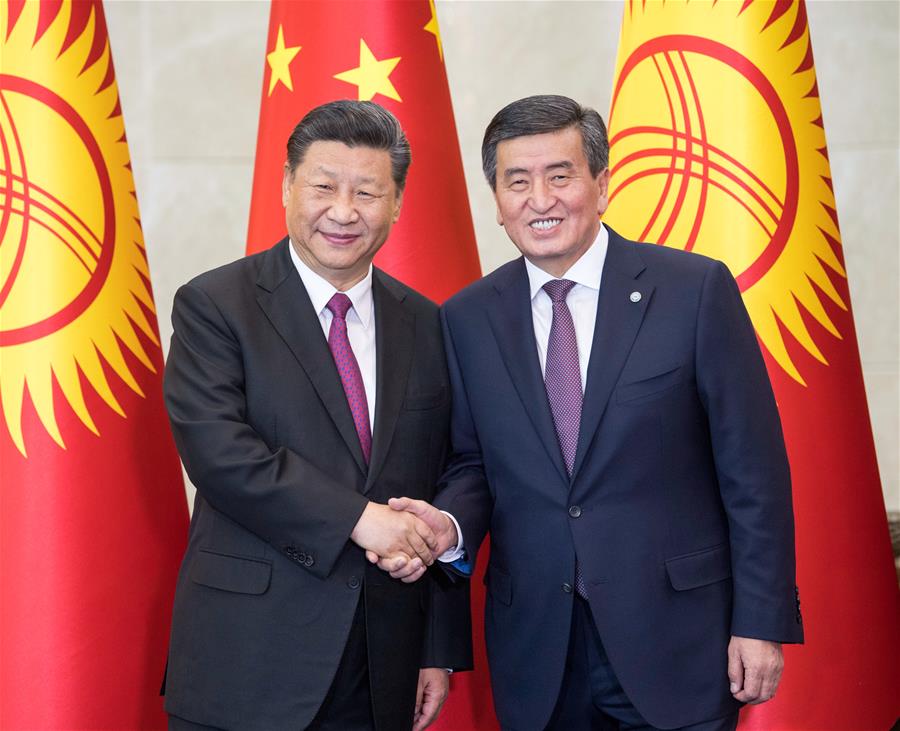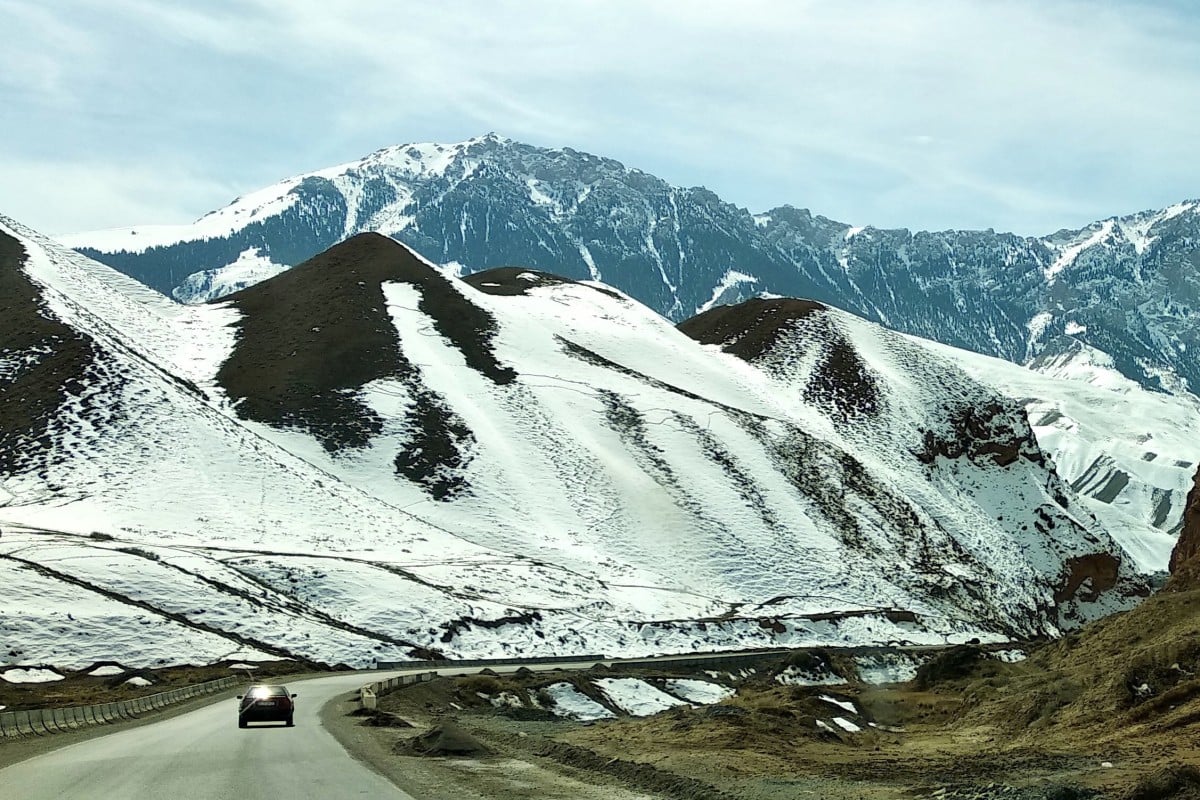One Road, One Belt in Kyrgyzstan
"There is a big hidden fight going on between Russia and China for influence in Central Asia."
"[Russia has more support from a Russian-speaking Kyrgyz population and considers Moscow a place to work or study], but the Russians don't have any money."
Rasul Umbetalieve, former Kyrgyz official, energy expert
"[TBEA was chosen by the People's Republic of China, a decision representing China's right] since it financed the modernization project."
former Kyrgyz prime minister, Sapar Isakov
"The whole project smelled bad from the start, but if there had not been an accident, nobody would have noticed."
"Of course we are afraid [of China's influence and power]. A small Chinese town has more people in it than our entire population."
Iskhak Masaliev, lawmaker, Kyrgyz Parliament
 |
| Chinese President Xi Jinping and his Kyrgyz counterpart Sooronbay Jeenbekov hold talks in Bishkek, Kyrgyzstan, June 13, 2019. Xi and Jeenbekov held talks here Thursday, agreeing to take their countries' comprehensive strategic partnership to new heights. (Xinhua/Li Xueren) |
Posing as altruistic in nature and in reality, anything but.
In Bishkek Kyrgystan, a dilemma arose when the area's one plant providing heat and electricity for the capital was failing, in its long-neglected decrepit state urgently overdue for an overhaul. Bids for reconstruction were being considered in a country that normally looks to Russia with which it has had a long and mostly advantageous relationship, to provide the professional expertise and workmanship. And then came a letter to the Kyrgyz Energy Ministry and Foreign Ministry from the Chinese Embassy in Bishkek.
The Chinese "recommended" a Chinese company called TBEA for the reconstruction. Most enticing, the prospect of a substantial loan to the nation of 6.2 million. With the offer of the loan came the provision that only a Chinese contractor be selected, leaving the Kyrgyz officials with a most discomfiting dilemma. Which is how it was that a company with little experience in building and repairing power stations was given the reconstruction contract for the energy plant.
That decision made in 2013 led to the overhaul being completed by TBEA rather than favouring choosing an experienced Russian company. And then, shortly after the completion of the overhaul most of Bishkek was left without heat or electricity in inclement, cold weather when the plant broke down, leading to a public outcry. A trial is now underway in Bishkek exposing Chinese business practices allied with local corruption focusing on Chinese cash and its allure.
 |
Then-chief of the plant, Nurlan Omurkul, had his doubts about TBEA. The badgering by Kyrgyz officials to have him endorse the decision that they had already committed to, sat particularly ill with him. "I've worked my whole life in power and heating plants and knew all along that the Chinese price of $386 million was too expensive", he stated.
The Russian bidder, Inter RAO had bid $518 million offering to invest its own money in building a completely new plant and in return wanted partial ownership, with a share of future revenues. They lost the bid.
 |
| The new 350km highway between Bishkek, the Kyrgyz capital, and Naryn was built with Chinese backing. Photo: Kalinga Seneviratne |
Labels: China, Coersion, Contract, Kyrsyzstan

<< Home